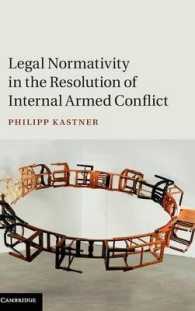Description
(Short description)
Investment treaties protect foreign investors' investments against discriminatory, unfair and expropriatory interference by the host state. However, the activities of an investor can have considerable implications for the environment, against which the host state might regulate. Investment tribunals are called upon to distinguish between legitimate regulation and the violation of investors' rights: They decide on the scope of this policy space by balancing the opposing interests.
(Text)
Investment treaties protect the investments of foreign investors against interference by the host state: The core standards offer protection against discriminatory or unequitable treatment and expropriation. However, the investment activities can impact on the environment of the host state. The state retains its policy space to regulate for an environmental purpose.
Some investment treaties refer to concepts of international environmental law, but do not impose a hierarchy of norms. In practice, it often falls to investment tribunals to distinguish between legitimate regulation and the violation of investors' rights. They decide on the scope of the state's policy space by balancing the opposing interests: Investment tribunals focus on the absence of protectionist intent, procedural propriety and the review of scientific evidence. If the regulatory framework is more stringent when the investment is made, there is less potential for subsequent conflict.
(Table of content)
Introduction
Contemporary Investment Law - Outline of Methodological Approach
1. Environmental Norms and Principles
'Environment' as a Concept - Development of Environmental Regulation - Subject Areas of Environmental Law - Fundamental Principles of Environmental Law - Scenarios of Potential Conflict - Conclusion
2. The Influence of Environmental Concepts on the Interpretation of Investment Provisions
Conflicts of Norms and Interpretation - Preambular Clauses - References within the Substantive Provisions of the Respective Treaties - Further Points of Entry for Relevant Rules of International Law - Conclusion
3. Standards of Non-Discriminatory Treatment
National Treatment - Most-Favoured Nation Treatment - Prohibition against Arbitrary and Discriminatory Measures - The Environmental Relevance of Standards of Non-Discrimination - Summary
4. Standards of Fair Treatment
Full Protection and Security - Fair and Equitable Treatment - Analysis of Case Law Concerning Environmental Measures - Prohibition against Arbitrary or Unreasonable Measures - The Environmental Relevance of Standards of Fairness - Summary
5. Expropriation
Direct Expropriation - Indirect Expropriation - Analysis of Case Law Concerning Environmental Measures - Expropriation in the Environmental Context - Application of Criteria to Different Scenarios - Compensation - Conclusion
Conclusion
Bibliography
Table of Decisions
Table of Treaties and Other International Instruments
Subject Index
(Text)
Investment treaties protect the investments of foreign investors against interference by the host state: The core standards offer protection against discriminatory or unequitable treatment and expropriation. However, the investment activities can impact on the environment of the host state. The state retains its policy space to regulate for an environmental purpose.
Some investment treaties refer to concepts of international environmental law, but do not impose a hierarchy of norms. In practice, it often falls to investment tribunals to distinguish between legitimate regulation and the violation of investors' rights. They decide on the scope of the state's policy space by balancing the opposing interests: Investment tribunals focus on the absence of protectionist intent, procedural propriety and the review of scientific evidence. If the regulatory framework is more stringent when the investment is made, there is less potential for subsequent conflict.








